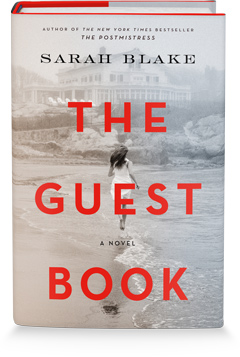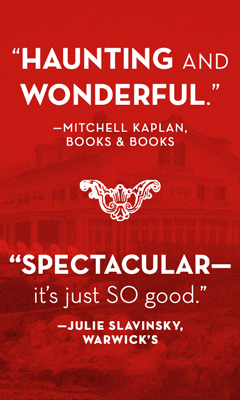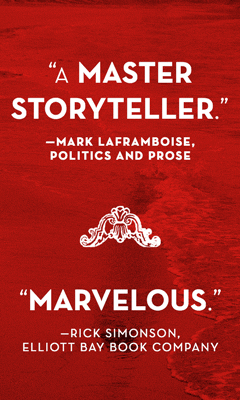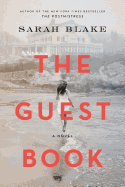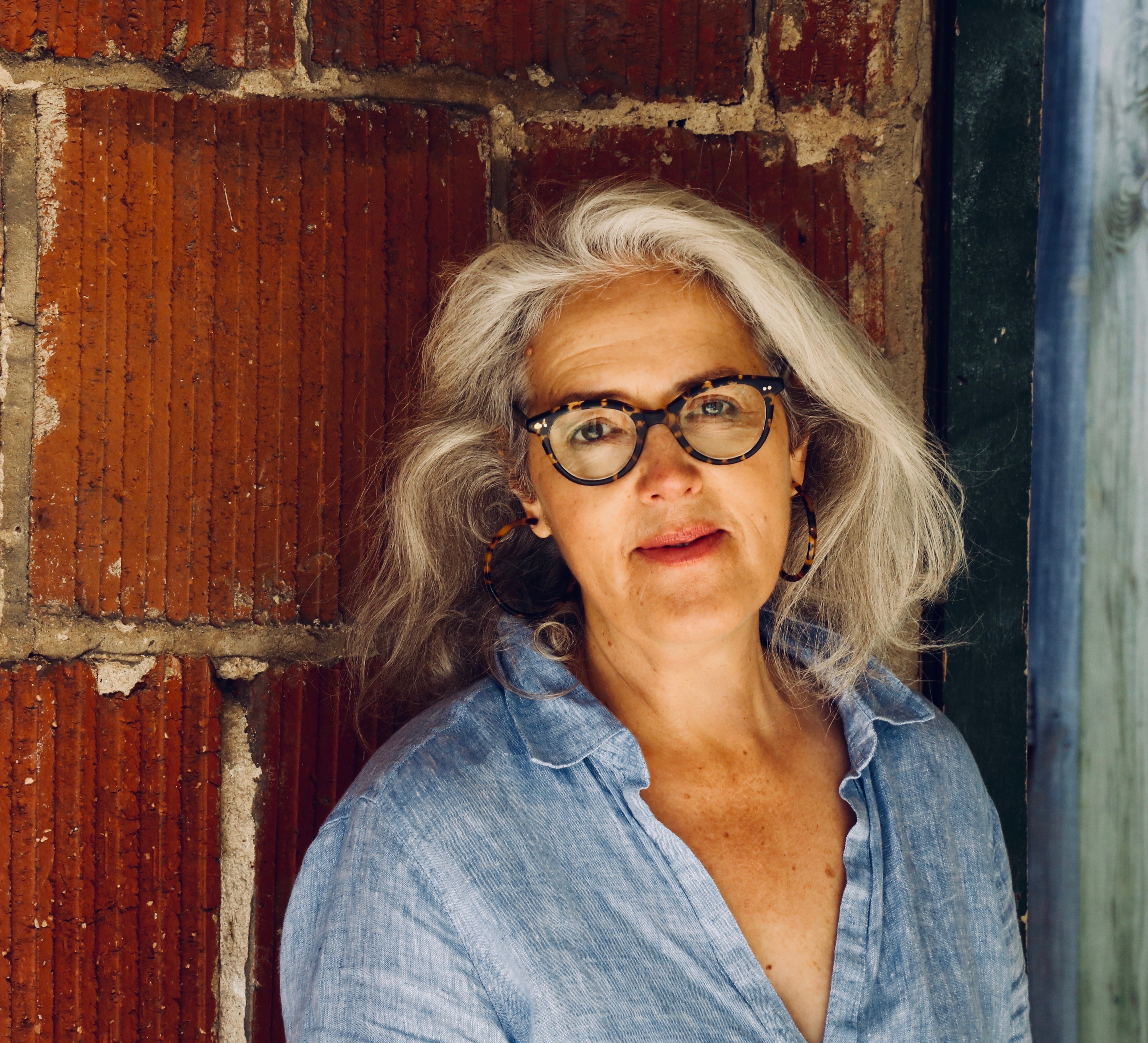The Guest Book
by Sarah Blake
A remote island off the Maine coast holds a family's silences that reverberate through four generations.
A life-or-death decision will carry devastating consequences for one mother while haunting another forever.
A reckoning with one's personal history and of those we love.
In The Guest Book, Sarah Blake brilliantly connects each of these distinct touchstones through a sweeping and unforgettable multigenerational family saga that begins in 1935 with Kitty and Ogden Milton. The young couple seemingly has everything--a loving marriage, three beautiful children and a privileged lifestyle befitting Ogden's status at the helm of Milton Higginson, a prestigious New York investment banking firm. But when their charmed life shatters, Kitty's grief prompts Ogden to purchase Crockett's Island, an idyllic patch of land off the coast of Maine, to "make her happy."
The island and its "Big House" become the Miltons' summer home for four generations, hosting the family and their guests for seasons of picnicking and sailing, square dances in the barn, lobsters delivered daily and cocktails served on the dock. Everything about the island--the annual traditions, the decor in the sprawling house, the family members' rigid mindsets--remains anchored in a bygone time. The island holds the family's happiest memories alongside their darkest secrets, deepest regrets and devastating silences.
With relatable characters, an absorbing plot and even a touch of mystery, Blake easily draws her reader into the Miltons' world. She is a master at showing how one person's decisions--the large and the seemingly insignificant alike--hold the power to shape both an individual's and a family's history while echoing down throughout generations. "Every life [has] at its center a beginning that was not birth," Blake writes, "a moment when the catch on the lock in one's life opens, and out it comes, starting forward."
Blake sets this theme immediately with her choice of two epigraphs for The Guest Book. James Baldwin's quote from his 1953 essay "Stranger in the Village" about how "people are trapped in history and history is trapped in them" and a quote from Virginia Woolf's Between the Acts--"surely it was time someone invented a new plot"--both serve as The Guest Book's literary touchstones.
A pivotal incident in the Milton family occurs in 1959 when Len Levy, who is Jewish, is hired to work at the WASPish Milton Higginson. Bright and ambitious, Len falls in love with Ogden's sister, Joan, who reciprocates his feelings while knowing they need to keep their relationship secret. When Len is invited to Crockett's, he naively brings along his best friend Reg, an African American man. A contemporary of James Baldwin's, Reg helps Len understand that nobody who is considered "different"--much less a Jew or a black man--will ever be fully welcomed in the Miltons' world or be considered their equals. Even more shocking is that this experience isn't the first time someone in the Milton family has been challenged to make a life-defining choice influenced by prejudice.
More than 75 years later, Evie Milton, Kitty and Ogden's granddaughter, is fighting with her cousins over selling the island. Evie realizes her desire to keep Crockett's represents more than childhood nostalgia and is somehow connected to her recurring dreams of her mother, Joan, who wished to be buried on Crockett's with a nondescript, unidentified marker simply stating "Here." To try and understand her mother's odd request, Evie returns to Crockett's for what may be her final visit--just as her husband's academic research uncovers disturbing revelations about the Milton family's past, particularly the financial investments Evie's grandfather Ogden made in Germany during Hitler's rise to power.
Through Evie, a professor with expertise in medievalism and women's lives, Blake challenges her readers to confront the prejudices and silences that remain embedded in our individual and collective histories. Similarly, Evie tells her students that history is made every day by ordinary people: "Wars, plagues, names upon tombs tell us only what happened. But history lies in the cracks between.... History is sometimes made by heroes, but it is always made by us. We, the people, who stumble around, who block or help the hero out of loyalty, stubbornness, faith or fear. Those who wall up--and those who break through walls. The people at the edge of the photographs. The people watching--the crowd. You."
With The Guest Book, Blake gives readers a modern-day classic that shows how our personal and collective histories are inscribed upon our lives every single day. And once we recognize that, it is up to us to do right by that knowledge, as our actions become our legacy. --Melissa Firman



